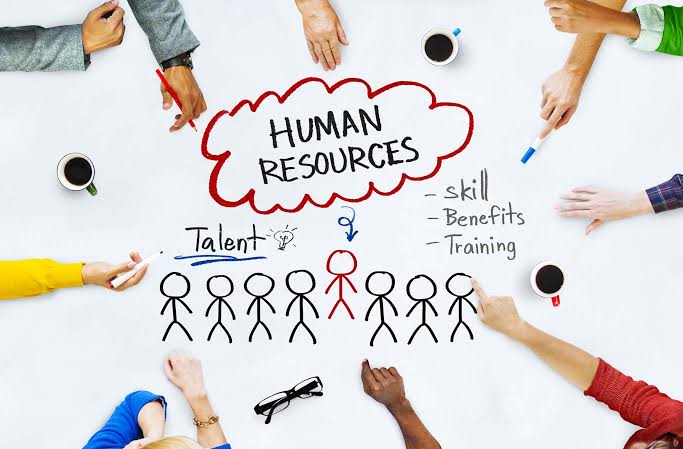The top 10 HR management skills highlight the importance of communication, leadership, and talent management, while also emphasizing adaptability and ethical responsibility. Businesses that cultivate these skills within their HR teams will be better equipped to build resilient, engaged, and high-performing workforces in the years ahead.
Human resources (HR) has become a critical function in modern organizations, extending far beyond hiring and payroll. In today’s rapidly evolving workplace, HR professionals play a central role in shaping culture, developing talent, managing compliance, and driving employee engagement. As businesses adapt to technological change, remote work, and new workforce expectations in 2025, the skills required for effective HR management have also expanded. Below are the top 10 human resources management skills ranked from 10 to 1.
10. Organizational Skills
HR professionals manage a wide range of responsibilities, from recruitment and onboarding to performance evaluations and compliance reporting. Strong organizational skills are essential for handling these tasks efficiently.
Being organized ensures that processes like payroll, benefits administration, and employee records are managed without error. This skill also helps HR managers juggle competing priorities, especially in fast-paced environments where deadlines are constant.
9. Adaptability
The modern workplace is constantly changing, with trends such as remote work, AI-driven recruitment, and evolving labor laws reshaping HR practices. Adaptability allows HR managers to adjust strategies quickly to meet new challenges.
An adaptable HR professional can seamlessly transition policies, update training methods, or introduce new tools that align with business needs. This flexibility ensures that the HR function remains relevant and responsive.
8. Conflict Resolution
Disagreements and misunderstandings are inevitable in any workplace. HR managers must possess strong conflict resolution skills to address issues fairly and effectively.
Mediating disputes between employees or between staff and management requires patience, empathy, and impartiality. By resolving conflicts quickly and constructively, HR professionals help maintain workplace harmony and employee satisfaction.
7. Data-Driven Decision Making
With HR analytics becoming increasingly important, data-driven decision-making has become a critical skill. Using metrics like employee turnover, engagement scores, and performance data allows HR to identify trends and develop informed strategies.
This skill ensures that recruitment, retention, and training initiatives are based on evidence rather than guesswork. Data-driven HR also supports long-term workforce planning by predicting future staffing needs.
6. Ethical Judgment and Integrity
HR managers are trusted with confidential employee information, sensitive workplace issues, and compliance responsibilities. Ethical judgment and integrity are essential to handling these responsibilities with fairness and discretion.
Maintaining high ethical standards builds trust between employees and management. It also ensures compliance with labor laws and helps avoid reputational risks that come with poor HR practices.
5. Talent Management
At the heart of HR is the ability to attract, develop, and retain top talent. Talent management involves creating strategies for recruitment, career development, succession planning, and employee engagement.
An HR professional skilled in talent management ensures that the right people are in the right roles, and that they have opportunities for growth. This directly impacts organizational performance and long-term competitiveness.
4. Leadership and Team Building
HR managers often lead teams, oversee training, and guide managers in handling their staff effectively. Leadership skills are therefore essential to inspire confidence, build cohesive teams, and align HR practices with organizational goals.
Effective HR leadership also means being a role model in communication, fairness, and decision-making. This creates a positive influence on both the HR department and the broader workforce.
3. Employee Engagement and Relationship Management
Building strong relationships with employees is a cornerstone of HR. Engagement involves creating a work environment where employees feel valued, motivated, and connected to organizational goals.
Strong relationship management allows HR to understand employee needs, address concerns, and foster loyalty. In today’s competitive job market, high engagement is directly tied to retention and productivity.
2. Strategic Thinking
Modern HR is not just about administration—it is about aligning workforce strategies with business objectives. Strategic thinking enables HR professionals to forecast workforce trends, plan for future skills, and contribute to long-term organizational success.
By taking a strategic role, HR becomes a partner to leadership in driving innovation, managing change, and ensuring the organization has the right talent to achieve its vision.
1. Communication Skills
At the top of the list is communication, the most essential HR management skill. HR professionals must effectively communicate policies, resolve issues, deliver feedback, and convey organizational culture.
Strong communication includes both written and verbal skills, as well as active listening. It ensures transparency, builds trust, and helps employees feel supported. Without effective communication, even the best HR strategies fail to achieve their intended impact.
Conclusion
Human resources management in 2025 requires a blend of technical knowledge, interpersonal skills, and strategic vision. From organizational skills to advanced data-driven decision-making, HR professionals must balance day-to-day operations with long-term planning.
